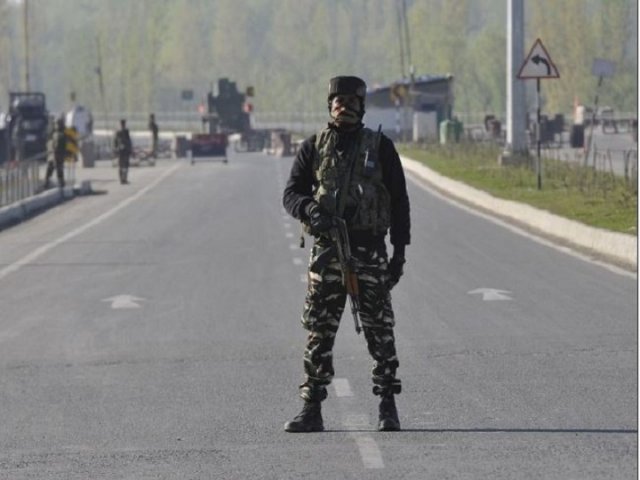Indian army found itself in the middle of a big controversy regarding a fake encounter that took
place on July 18, 2020. The Army claimed to have neutralized three foreign terrorists in
Amshipora village of Shopian district with a huge cache of arms and ammunition. Right since
day one, the locals were apprehensive about the authenticity of such an encounter. The locals
claimed that those killed in the encounter were actually labourers from Rajouri, Jammu, who had
travelled to Shopian during the apple harvesting season. Locals allege that on arrival from
Rajouri via Mughal road, they took a room for rent. In a conversation with Indian Express, the
house owner, Mrs Fareeda Bano, recorded that the three had no bedding and she gave them one
of the blankets to sleep on.
The Army, however, was very much sure that the deceased was actually killed after a fierce gun
battle. They even connected this encounter as a major success in tackling militant recruitments.
Talking about the Amshipora encounter in a press conference, 12 Sector Commander of the
Army’s Counter-Insurgency unit Rashtriya Rifles said, " We are hopeful that there will be low
recruitment of youths in terrorism and movement of Pakistani terrorists will be under control and
we will neutralise them soon."
Meanwhile, the family members of these youth were worried as they could not be connected after
July 17. The family of the Rajouri youths in an interview with The Wire stated that they had
lodged a missing report with the police in Rajouri on July 23. One of the labourers Imtiyaz
Ahmad was already working as a labourer in Shopian for around one month. On his return to
home, he asked Abrar (the teenager) to visit Shopian in search of work. The family further stated
that they had left for Shopian on July 16 and since then they could not be connected.
The family members further alleged that they came to know about the killings only on the basis
of photographs that were shared on various media handles by the army and other agencies. A relative
of Abrar Ahmad claimed that he could identify Abrar from photographs shown to him by
somebody purportedly of those killed in Amshipora, Shopian on July 18. Imtiyaz Ahmad (20)
and Mohammad Ibrar (16), residents of Dharsakri village, and Abrar Ahmad (25) of Tarkasi
village of Kotranka, Rajouri, were killed in an alleged encounter in Amshipora village of
Shopian, in south Kashmir, on July 18.
As has been the case throughout the Covid-19 induced lockdown, the dead bodies were taken to
Baramulla and buried there. In a brief statement, the army said on July 20 stated, “We have noted
social media inputs linked to the operation at Shopian on 18 Jul 2020. The three terrorists killed
during the operation have not been identified and the bodies were buried based on established
protocols. The army is investigating the matter.”
As the questions regarding the authenticity of the alleged encounter started getting louder, the
DNA testing and exhumation of bodies were finally done in September. The Army on the other
hand constituted a high-level court of inquiry to investigate the matter. As the Army pushed for a
fair probe, it acknowledged its lacunae and admitted at the preliminary stage that “powers vested
under the AFSPA 1990 were exceeded” and that the “dos and don’ts of the Chief of the Army
Staff [COAS] as approved by the Supreme Court have been contravened”.
In the further investigation, the Army released its report 25 December to the Indian Express. The
report stated that the Army’s court of inquiry had found an unnamed officer of Rashtriya Rifles
to have exceeded his authority under Armed Forces Special Powers Act and had failed to follow
the guidelines established by the Supreme Court of India. On 28 December 2020, The Jammu
and Kashmir police filed a charge sheet and indicted Captain Bhoopendra Singh of the 62
Rashtriya Rifles of having intentionally planned and organized the killings of the three youth.
The charge sheet also stated that the perpetrators had also planted weapons on them. Some media
reports even suggested that the encounter was executed for the cash reward of twenty lakh rupees
(approximately USD 27500). The Army however has denied any rewards being given in lieu of
encounters.
The Amshipora fake encounter opens the Pandora box of allegations against the Indian Army of
being implicitly involved in fake encounters. It has also raised the apprehensions of Human
Rights activists against the misuse of the Special Powers Act in the region. The positive side of
the story though is the Army’s own admission that one of its officers did actually exceed his
powers.

